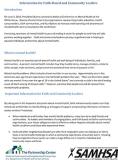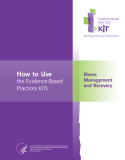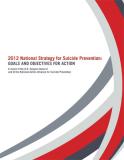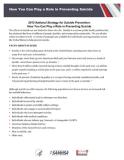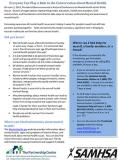
Faith and community leaders can play a significant role in helping to educate individuals and families about mental illness. This fact sheet can help communities and congregations raise awareness about mental health issues and emphasize the importance in seeking help when needed.
Units per Product
Download
Mental Health: Everyone Can Play a Role
File Type: PDF
File Size: 627 KB


